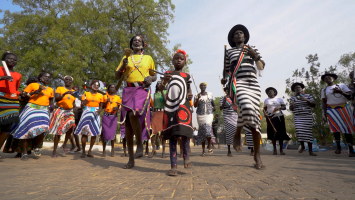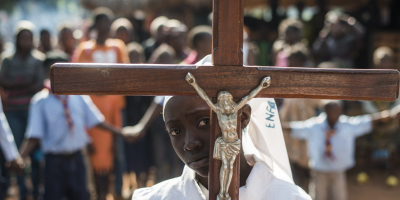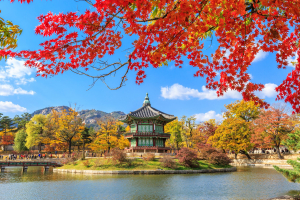Top 10 South Sudanese Culture, Customs and Etiquette
Should you remove your shoes when visiting friends? Should you greet those on elevators with a smile? When thinking about the dos and don'ts in your own ... read more...nation, these questions might not seem like the most obvious ones, but things that you might not even consider at home can have a major impact abroad. Here is a list of South Sudanese Culture, Customs and Etiquette.
-
Never use your left hand by itself to indicate or pass something. Use your right hand or both of your hands at once. An elder's disrespect is regarded as being particularly insulting. Some South Sudanese might think that being disrespectful can put a curse on the offender. If someone is older than you, use their formal title or a family connection while addressing them (see Naming for more information on this).
Look down and avoid direct eye contact with those who have a greater social position than you to show respect. People of significantly higher standing may be greeted or served while on their knees. Both women and children may bow down to their husbands and elders.
People from South Sudan frequently take time in a laid-back manner. Being late is common and not a sign of disrespect. Only that something "came up" is intended (usually within the family or among close friends). Sometimes being late is correlated with social standing. Everyone anticipates important individuals to arrive late while they are being waited on.
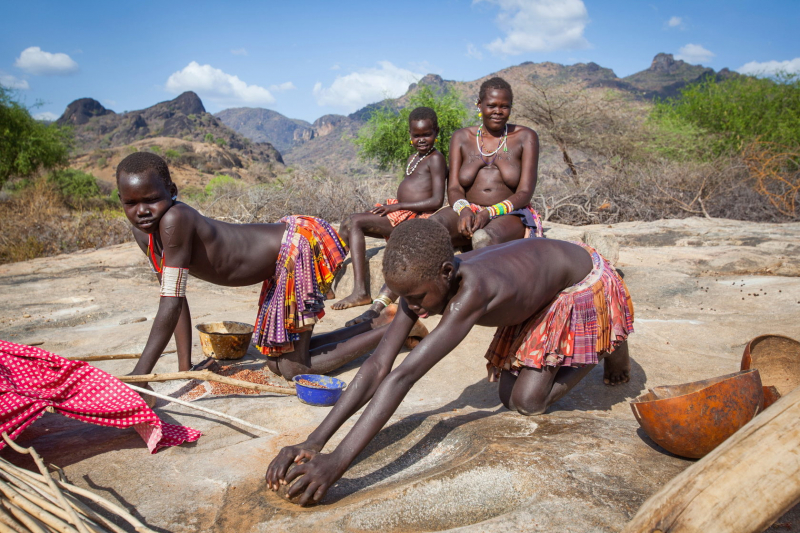
https://ultimatewildsafaris.com/index.php 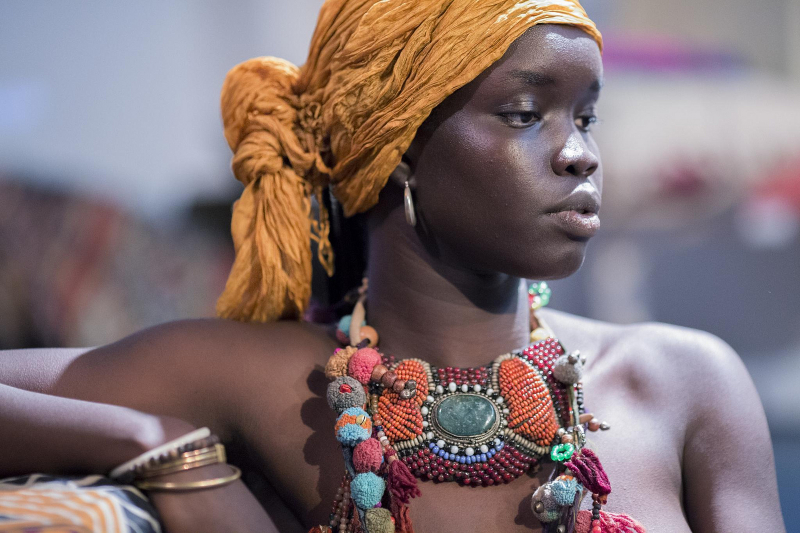
http://westafricalifestyle.com -
Formal Communication: South Sudanese people often communicate in a highly formal way. People typically speak in a serious and courteous manner, and in exchange, others have a tendency to take everything they say literally. However, communication is filled with compassion and familiarity even in the most official exchanges. To express friendship and affection, people may address one another as "Aunty," "Uncle," "Brother," or "Sister."
Indirect Communication: Depending on the relationship one has with the other person, communication can either be direct or indirect. South Sudanese tend to give indirect answers to personal inquiries when conversing with strangers or acquaintances in order to maintain their privacy. Closer friends are often more honest about their beliefs. But generally speaking, South Sudanese don't express their feelings all that much. For instance, it is rare that you will be informed right away if you upset someone. Instead, individuals typically use a tactful strategy to express their concerns by gradually ignoring the offender and ceasing to see them.
South Sudanese humor mostly consists of narration and jokes about current events. It's frequently called cheeky. There is, however, usually agreement that there is a proper time and location for it. For instance, it is wrong to use humor to make a serious situation more amusing. Furthermore, making jokes about elderly people is not always appropriate. When surrounded by others of their own gender, men and women tend to joke around more. It is best to avoid using sarcasm since South Sudanese have a tendency to misinterpret it and interpret it literally.
Swearing: South Sudanese communities seldom ever use profanity. If youth are seen using vulgar language, they are typically severely chastised. When someone curses, it's typically taken to mean that a fight is about to break out.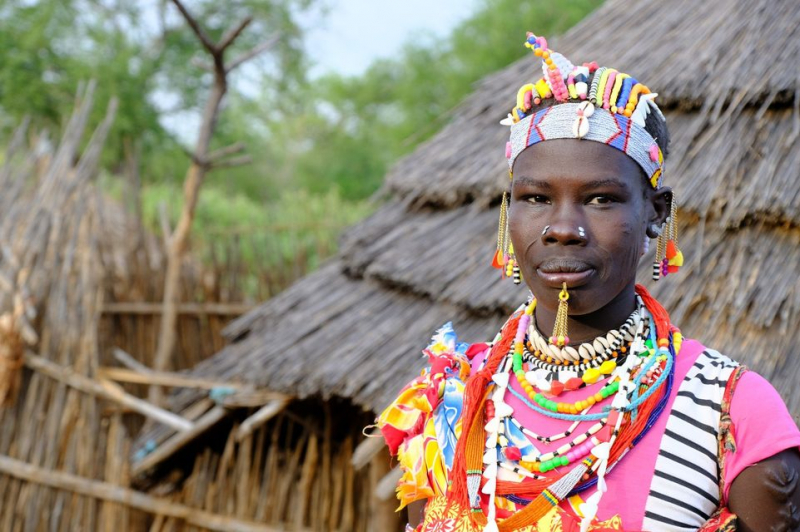
https://ultimatewildsafaris.com/index.php 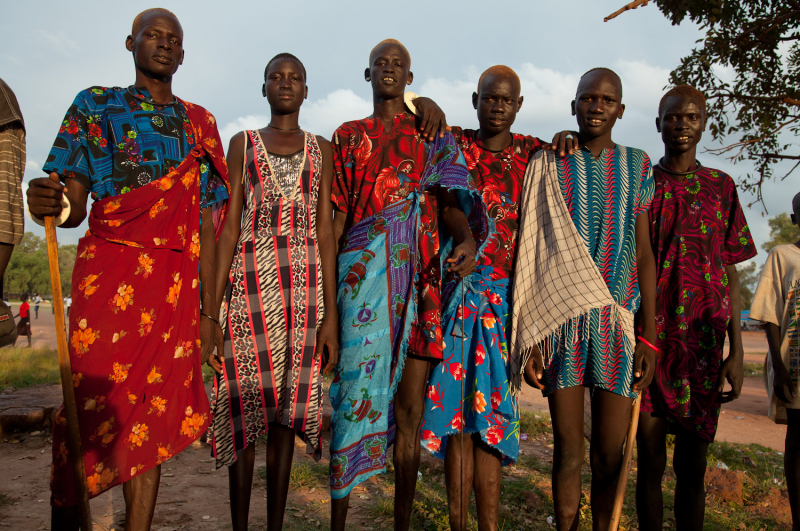
http://blog.oup.com/ -
Building and healing relationships among friends and family members depend greatly on social visiting and entertaining. If someone does not visit them for a long time, the Sudanese may find it offensive. In South Sudan, people may visit without invitation or notice—especially children. However, people make plans in advance if the visit will last more than a few days.
Bringing a tiny gift when your visit is a kind gesture. Additionally, you can provide presents for any resident youngsters. Before entering someone's home, take off your shoes. Prior to introducing yourself to other guests, it's customary to greet the man of the house.
Prior to introducing yourself to other guests, it's customary to greet the man of the house. As soon as guests arrive, hosts serve them refreshments, first offering them water, then tea or coffee (boon). Such hospitality is something to be received and given with respect. It is impolite to decline such refreshments. This can be interpreted as an outright insult to the host. During visits, men and women may interact together or separately, depending on their tribal/ethnic heritage.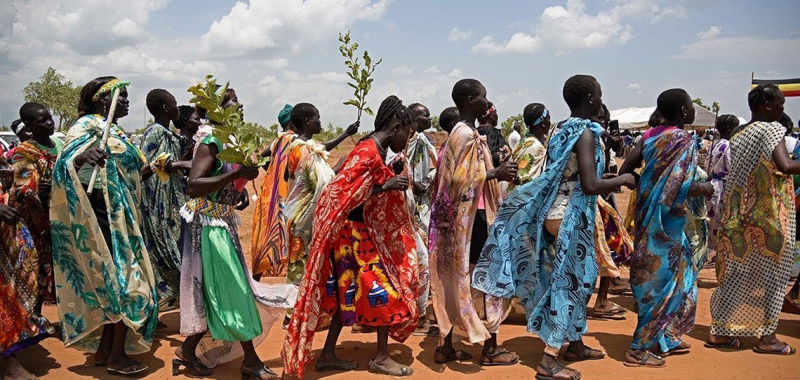
http://nilepost.co.ug/ 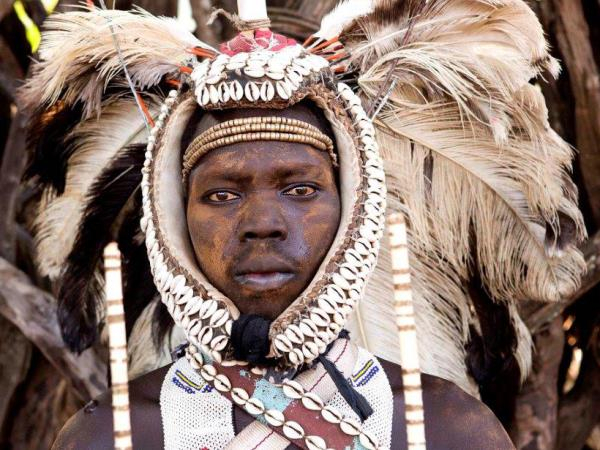
https://www.responsibletravel.com/ -
The first serving of food is given to the guests. Fathers are served before other family members because he is the family's head. Sometimes parents will let their kids eat fast or in advance so they can get to bed early. Men, women, and children can eat in different groups.
It's unusual to eat by yourself. Refusing a host's offer of food is quite impolite. Avoid using your full mouth to speak. The best goat, sheep, or fowl from the family may be served to very important guests. Some tribes may offer a bull sacrifice in honor of a visiting leader or highly esteemed individual. The honoree is then required to leap over the animal to rid its body of any contaminants.
Then, in order to rid the animal's body of any evil spirits, the guest of honor is expected to jump over it. Calabash gourds that have been dried up and hollowed out can be used to make dining utensils (e.g. as bottles). This fruit resembles a long, thick melon.
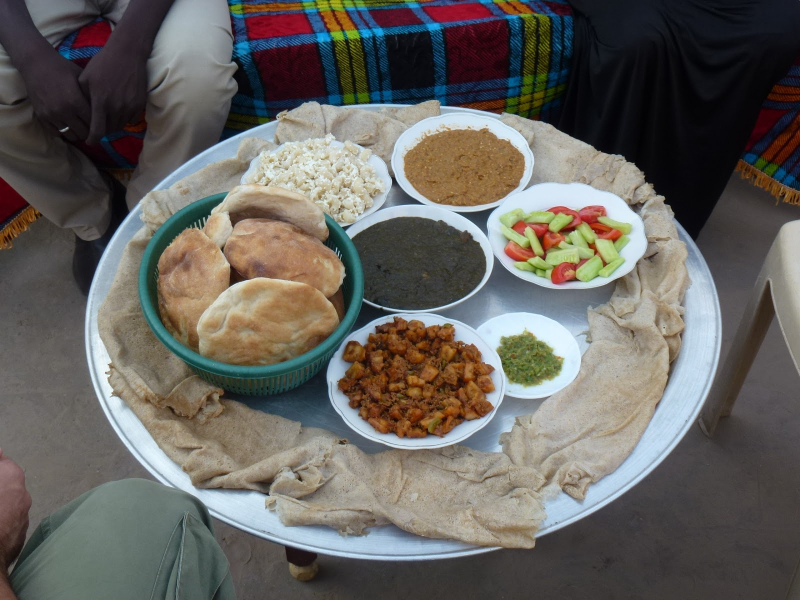
http://letterfromsudan.blogspot.com/ 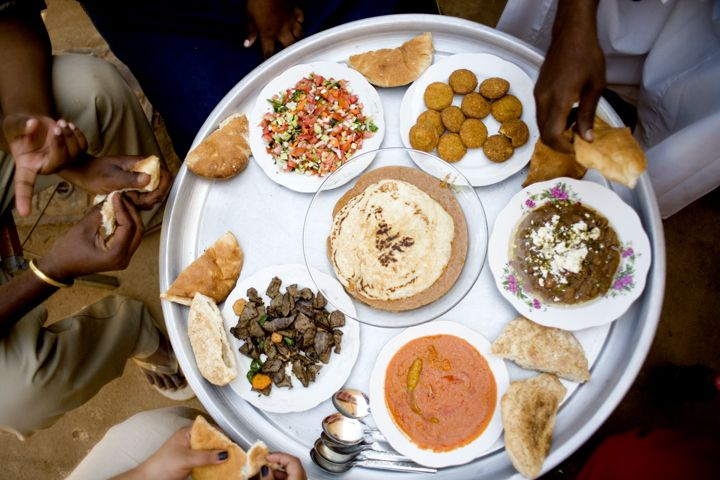
https://www.pinterest.com -
In South Sudan, extending a handshake as a greeting is customary. Not extending your hand in welcome is impolite. Before shaking hands, people may pat each other on the shoulder. Close friends or family may then embrace.
When welcoming someone, women are permitted to kiss them three times, exchanging cheeks. When introducing yourself, kneel or stoop down to show respect for people's age, especially if they are older than you. "Do pure" (Good morning), "Do parana" (Good afternoon), and "Gwon ada?" (How are you?) are the standard spoken greetings in Bari.
Unless someone is an elder, teacher, or religious leader, it is customary to refer to them by their first name. Use your bosses' titles and last names. Greetings between Christians in North Sudan are typically more formal than those between Muslims in South Sudan.
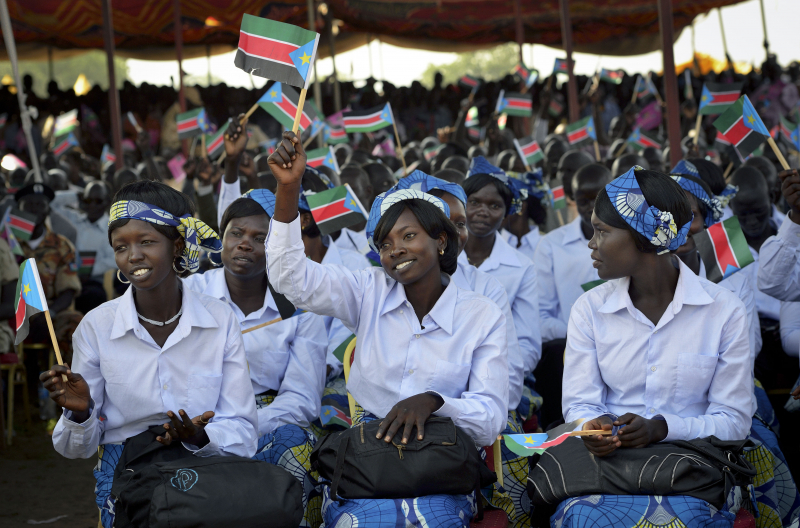
https://anglican.ink/ 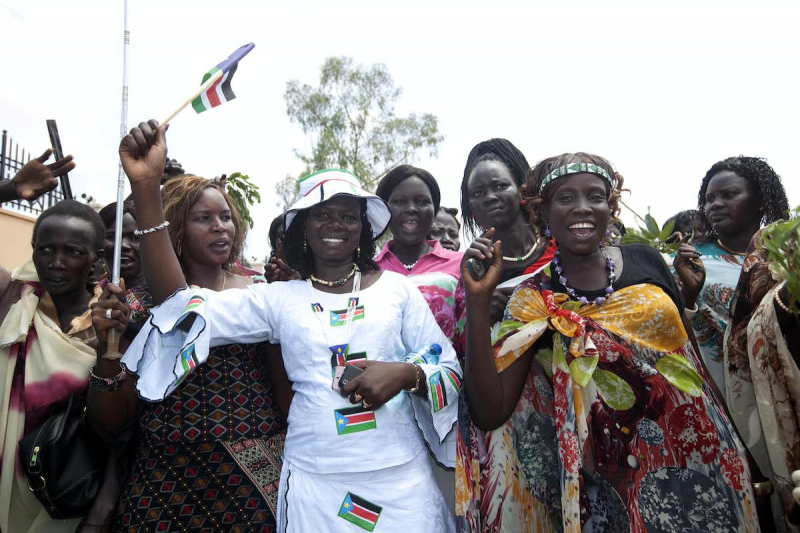
http://theconversation.com -
There is no recognized religion in South Sudan, and it is impossible to quantify the number of adherents to the various religions. The majority of South Sudanese people practice Christianity, though it is frequently mixed with other traditional cultural customs.
Most people attend Catholic and Anglican churches. Additional rural residents adhere to traditional African animist beliefs. Small Muslim communities exist in South Sudan, most of whom reside in cities. Compared to Sudanese in the North, they frequently practice a less strict form of Islam.
In South Sudan, talk of religion is typically common and open. Both young and old people are frequently quite involved in their religions. The majority of people find the concept of atheism or agnosticism strange. Locals in South Sudan frequently mistakenly believe that white immigrants are Christians before realizing that they may not be.
Christians and animists have traditionally gotten along well and with respect for one another. Many South Sudanese combine elements of their tribe's ancient rituals with Christianity, despite the fact that ancestor and spirit worship has historically been discouraged. People might find proselytizing Islam objectionable, nevertheless, given the hostility between South Sudanese Muslims and those of (North) Sudan.
Depending on their tribal or ethnic origin, some South Sudanese are more amenable to conversion than others. For instance, some South Sudanese from Nilotic tribes (such the Dinka, Nuer, and Shilluk) are less open to converting to Islam. They frequently have exceptionally strong tribal customs and institutions, which makes them more resistant to outside influence. Furthermore, a broad mistrust of foreign ideologies and systems remains from their past experiences with slavery and colonialism.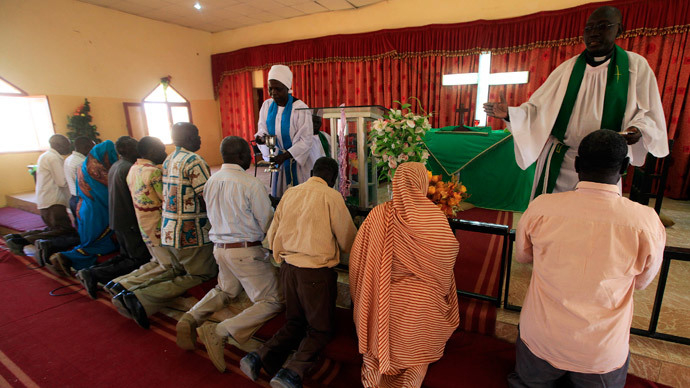
https://www.christiantoday.com/ 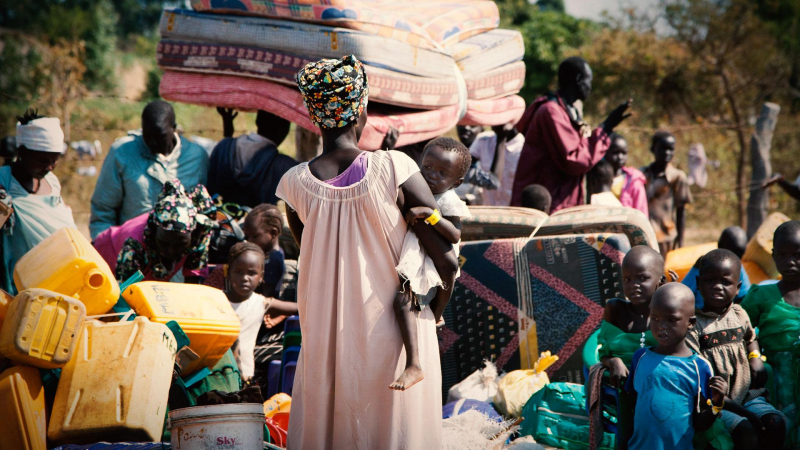
http://www1.cbn.com/ -
Through European missionary initiatives in East Africa, Christianity was introduced to Sudan. Catholic missionaries arrived initially in 1842, followed around 50 years later by followers of the Anglican and Presbyterian churches. The presence of a church in the town square typically indicates the existence of a Christian community.
There are a few instances in which South Sudanese Christians' practice of Christianity differs from common Western practices. In contrast to once every Sunday, people typically attend church services up to three times per week. In local languages, singing and dancing are frequently used during worship. A common practice known as "overnight" in South Sudanese Christian churches allows people to attend church services for up to 24 hours at a time.People may fast and sleep within the church during these extended prayer sessions, which may last for days. Some believe it to be a cathartic event whereby individuals approach God to the point of ecstasy, yelling, and dancing. A Christmas Eve march down the street singing hymns is a South Sudanese custom. This is followed by an overnight church service. In less developed regions, Christian organizations from neighboring nations have begun to conduct outdoor sermons and prayer sessions.
Prior to independence, the majority of southern Sudan's Christians saw their faith as a sign of resistance against Khartoum's plans for an Islamic state. Christianity still serves as a symbol of the South Sudanese people's united pan-southern identity today. It is regarded as the unifying force that unites people of all racial and ethnic backgrounds. For many South Sudanese, Christianity continues to be a very important part of their coping mechanism. People in South Sudan frequently find hope for the future by putting their confidence and fate in God.
Christian churches frequently offer refugees who have recently immigrated to other nations both material and emotional support. They serve as an open forum for intergenerational communication and serve as a key location for fostering cross-community involvement. For instance, it frequently provides parents with the chance to interact with their kids in a setting unrelated to their daily lives at home.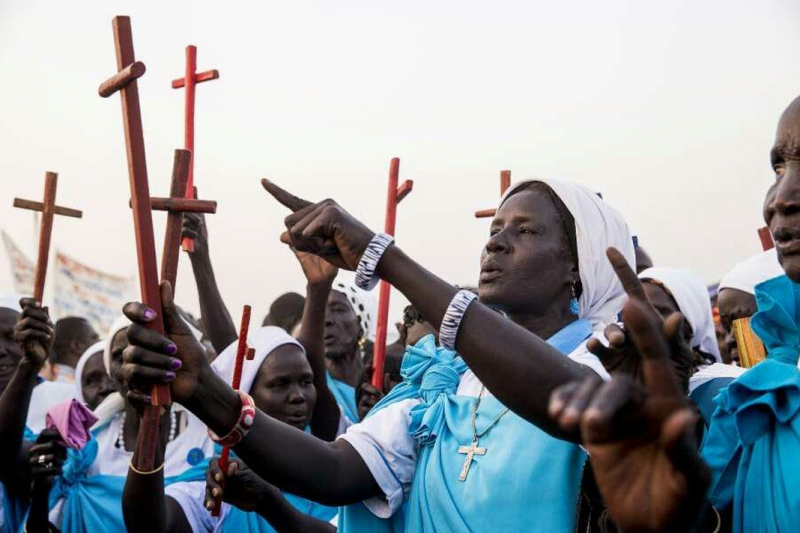
https://joynews.co.za/ 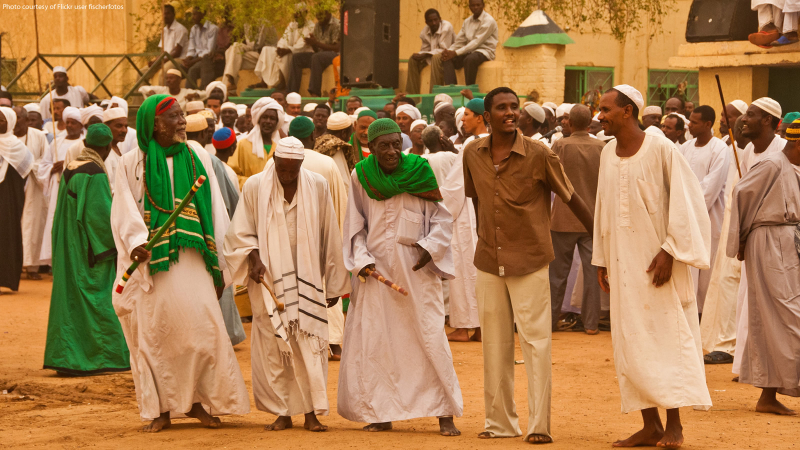
https://berkleycenter.georgetown.edu/ -
The South Sudanese historically held a profound belief in the spiritual and paranormal world. Although it has largely declined with the advent of Christianity, certain communities still adhere to it. Since animist belief systems in South Sudan differ significantly between tribes and communities, it is impossible to generalize about them. The potential of ancestors to influence people's life and the influence of the dead, however, is a recurrent theme.
Many animists acknowledge an ever-present creator who keeps an eye on all creatures. These opinions, however, differ greatly between groups. Each tribe might worship a distinct deity or gods, each of whom interacts with people in a way that is unique to that tribe. For instance, the traditional Dinka divinity is known by the name "Nhialac."
For instance, the traditional Dinka divinity is known by the name "Nhialac." Through spiritual mediums and ceremonies, people can communicate with this global creator and source of life. The god "Kuoth" has a conditional relationship with the Nuer animists, and if someone does something wrong, they risk being expelled from the group and spiritually rejected by Kuoth.
A specific method is used to contact each god. Communities frequently view particular individuals, usually chiefs or elders, as bridges between the spiritual world and the tribe. Animists from the Jur tribe, for instance, communicate with their god "Boko'ba" through their ancestors, whilst animists from the Murle tribe employ chiefs as a means of communication between the society and "Tammu" (God).
There are a lot of common myths about what creates bad luck. Some people could think that nasty 'zar' (spirits) occupying a person, offended ancestors seeking retribution, or local witches are to blame for disease or poor luck. There is also a prevailing belief in the "evil eye," according to which someone with magical abilities can curse someone just by gazing at them. "Jak" is the Dinka word for supernatural abilities.
Offerings to spirits, ancestors, or gods are a common part of animist rituals. For instance, it is typical to sacrifice animals and crops when they are in season. For animist communities, the use of magic, totems, and conventional medicines is frequently connected to daily life.
https://www.wildimages-phototours.com 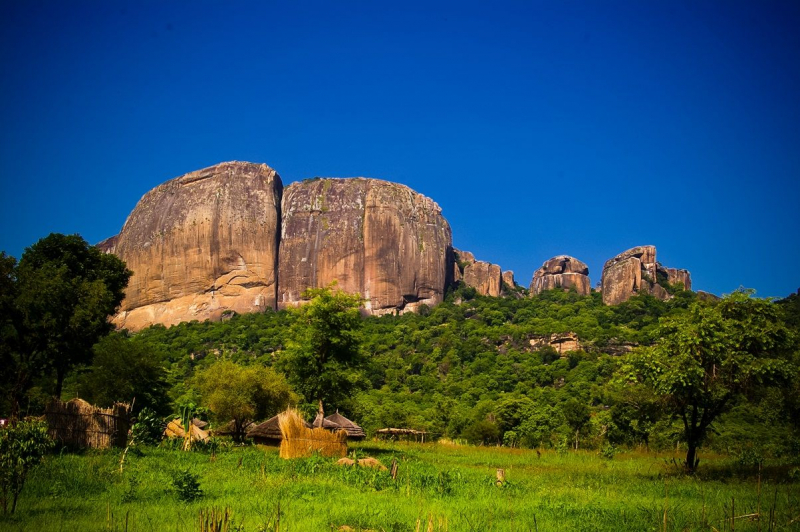
https://www.pinterest.com.au -
The typical household is vast and intergenerational in nature. Typically, people aim to have as many kids as they can, often up to 20. Due to the cost of having many children, South Sudanese expatriates may choose to have smaller families; yet, nuclear family units typically stay bigger than what is typical throughout the English-speaking West. Unless unavoidable circumstances prevent it, the extended family usually resides with the nuclear family. All relatives typically reside close to one another, even in instances where they cannot live together.
In times of need, extended family members anticipate being able to rely on one another. For instance, younger generations tend to older family members as they get elderly. Many persons who were bereaved or orphaned throughout the decades-long battle are now being cared for and adopted by larger family networks. Given the size of certain families, they might use public areas like parks as gathering places.
Until they get married or even after, kids often reside with their parents. Depending on the tribe, marriage might take place whether a person is still a teenager or much later in life. In cities, it typically occurs later. However, by their mid-20s, the majority of people hope to be married and settled with their spouse.Upon marriage, women typically relocate to the family house of their spouse. However, it is typical for males to relocate their bride into their parents' home along with them. The oldest couple, their sons, their sons' wives, and any unmarried daughters, followed by their grandchildren, make up the typical South Sudanese household.
As contrast to having just one set of parents, childcare is frequently shared by the entire adult population of a household or, perhaps, the entire community. In general, a child can be disciplined by any adult involved. Corporal punishment is frequently used. Even though many individuals are involved in raising Sudanese children, a child's bad behavior is typically seen as a reflection of their parents alone.When they make a mistake, the family and its ancestors are embarrassed. In some tribes, fathers sleep in a separate chamber while mothers sleep in the same bed with their children until the latter is around 7 years old.
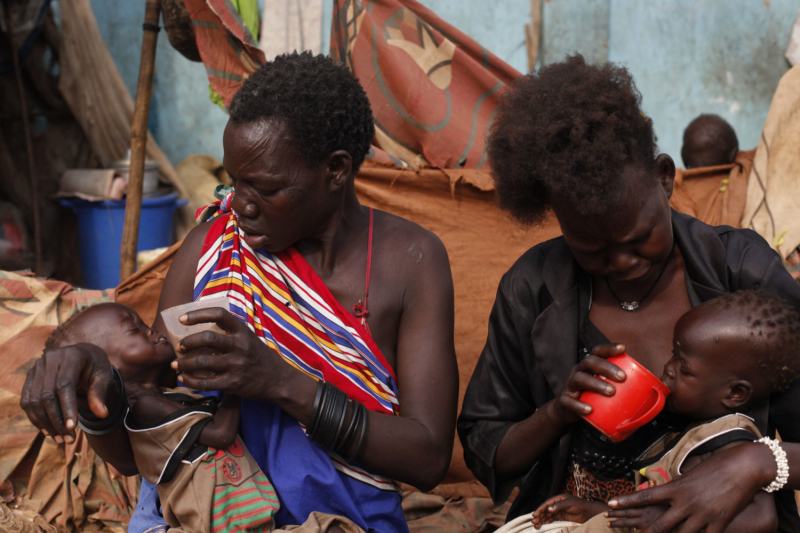
https://www.unicef.org.uk/ 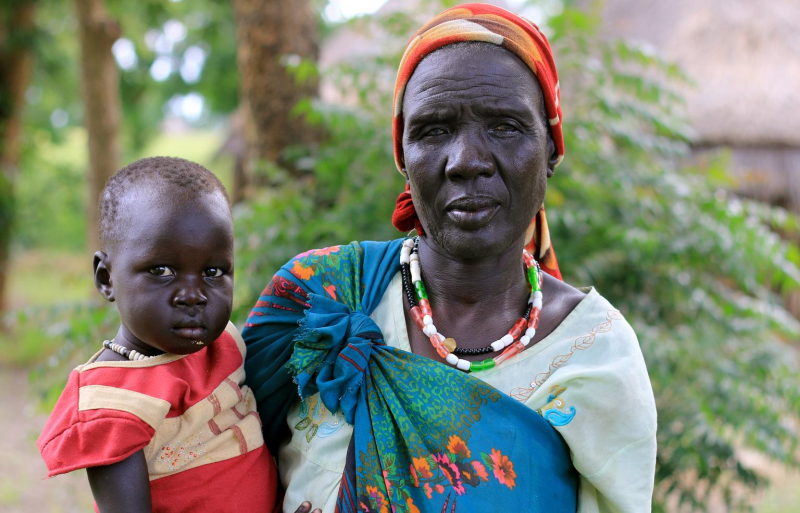
https://www.unicefusa.org/ -
South Sudan has essentially no dating customs (as they are known in the English-speaking West). Socializing alone in public with a person of the opposite gender is frowned upon unless the two are married. In some cases, especially for females, such behavior may be punishable. In general, a couple can only publicly discuss their relationship after they have settled down and made an engagement announcement.
Marriage customs in South Sudan differ substantially depending on an individual's ethnicity, tribe, and religion as well as their financial status and line of work. Women are expected to have children relatively soon after getting married because procreation and expanding clan networks are typically the main goals of marriage.
Parents' consent is crucial because marriage is viewed as the joining of two families that broadens and strengthens communities. When selecting potential mates, numerous aspects are taken into account. People are mostly worried with the race and lifestyle of their family (e.g. cattle herders, merchants, etc.). The younger South Sudanese generation is reportedly growing less compliant with their parents' wishes over who they would marry, according to some reports. Men frequently return to South Sudan, get married, and then bring their newlywed wife back to their host nation.
When a couple gets engaged, both families make sure to behave nicely and keep up their good ties with everyone in the neighborhood. If there is any sort of conflict, quarrel, or suspicion about the reputation of the other family, marriages may be postponed or prevented. The relatives may share meals together, exchange gifts, or give a bride price or dowry to the bride's family to formalize the engagement and strengthen the tie between the families. The groom's entire extended family may be required to contribute to this substantial dowry (e.g. 100 cows). The dowry's conditions vary from tribe to tribe, and it's not necessarily in the form of property or cash.
For instance, the groom's family might consent to cultivate the farmland of the bride's family. This is meant to make up for the family's loss of the labor that their daughter or sister provided when she left to get married. The cost of dowries has increased significantly during the last few years. South Sudanese family might need to wait a number of years between each son's marriage in order to amass the required wealth.
Interethnic and tribal marriages do happen, however attitudes toward them differ amongst cultures. In addition, it might be challenging to navigate the varied bride price customs of several tribes. For instance, a Zande man could find it challenging to wed a Dinka or Nuer lady because the tribes have distinct traditional ways of subsisting; the wedding would be complicated, and there would be a sizable dowry. The process of getting married outside of their tribe may be simpler for Nuer men.
For the most part, a traditional ceremony will be followed by a Christian ceremony. There are other more cultural customs surrounding marriage, though, that may or may not be observed. In South Sudan, for instance, polygyny can exist among people from all socioeconomic classes. This marriage is polygamous, meaning the guy may have several wives, typically two or three. The custom of wife inheritance may also be practiced by tribes in Nilotic. According to this tradition, if a man passes away, his brother will take his widow as a second wife. Incest, however, is strongly disapproved of. Tribes can go back many generations to find their ancestors to stop this.
Divorce is extremely uncommon because marriage typically cements the everlasting fusion of two families. The practice is further complicated by the dowry custom. In exchange for the exorbitant amount he originally paid for his bride, the guy typically receives automatic custody. This may discourage women from divorcing. In some cases, it may be more practical to return the dowry to the groom's family and separate if the couple has never had children. However, stepmothers are more likely than stepfathers to raise South Sudanese children.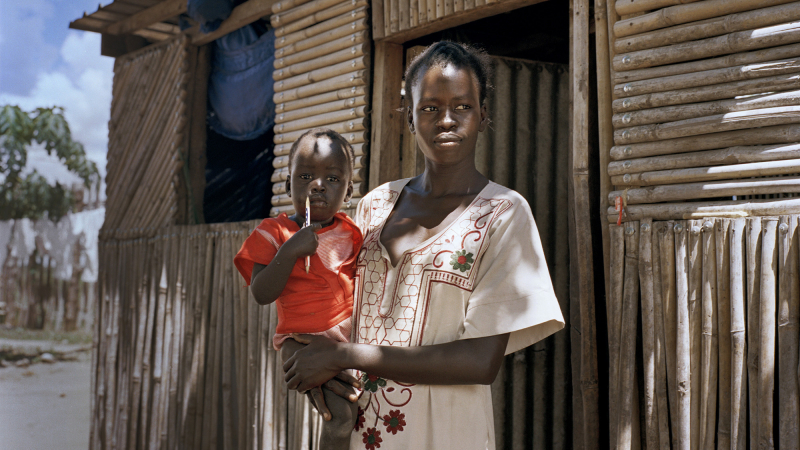
http://www.latimes.com/ 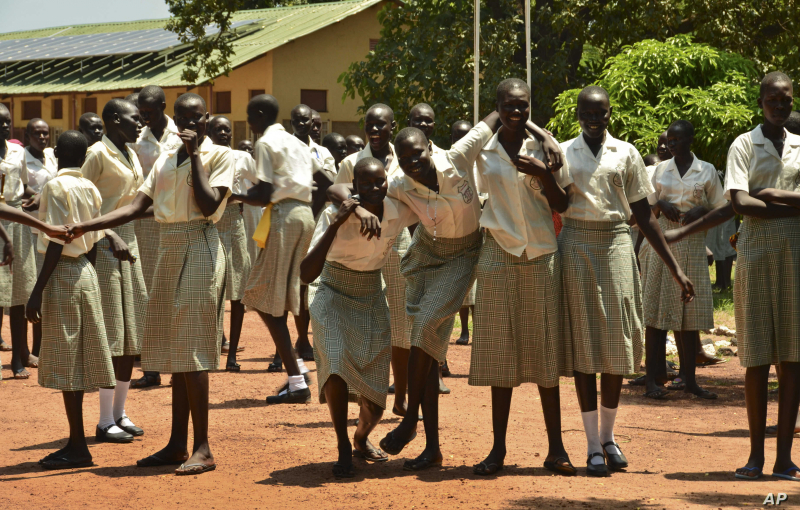
https://www.voanews.com












